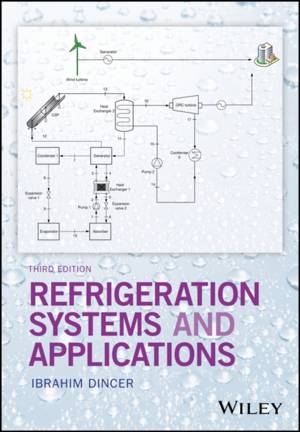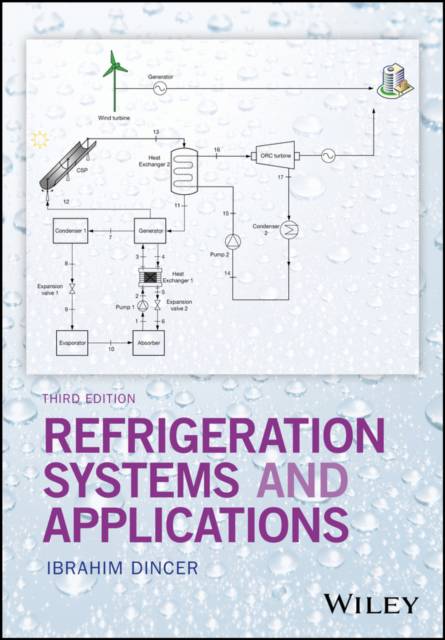
- Retrait gratuit dans votre magasin Club
- 7.000.000 titres dans notre catalogue
- Payer en toute sécurité
- Toujours un magasin près de chez vous
- Retrait gratuit dans votre magasin Club
- 7.000.0000 titres dans notre catalogue
- Payer en toute sécurité
- Toujours un magasin près de chez vous
Description
The definitive text/reference for students, researchers and practicing engineers
This book provides comprehensive coverage on refrigeration systems and applications, ranging from the fundamental principles of thermodynamics to food cooling applications for a wide range of sectoral utilizations. Energy and exergy analyses as well as performance assessments through energy and exergy efficiencies and energetic and exergetic coefficients of performance are explored, and numerous analysis techniques, models, correlations and procedures are introduced with examples and case studies. There are specific sections allocated to environmental impact assessment and sustainable development studies. Also featured are discussions of important recent developments in the field, including those stemming from the author's pioneering research.
Refrigeration is a uniquely positioned multi-disciplinary field encompassing mechanical, chemical, industrial and food engineering, as well as chemistry. Its wide-ranging applications mean that the industry plays a key role in national and international economies. And it continues to be an area of active research, much of it focusing on making the technology as environmentally friendly and sustainable as possible without compromising cost efficiency and effectiveness.
This substantially updated and revised edition of the classic text/reference now features two new chapters devoted to renewable-energy-based integrated refrigeration systems and environmental impact/sustainability assessment. All examples and chapter-end problems have been updated as have conversion factors and the thermophysical properties of an array of materials.
- Provides a solid foundation in the fundamental principles and the practical applications of refrigeration technologies
- Examines fundamental aspects of thermodynamics, refrigerants, as well as energy and exergy analyses and energy and exergy based performance assessment criteria and approaches
- Introduces environmental impact assessment methods and sustainability evaluation of refrigeration systems and applications
- Covers basic and advanced (and hence integrated) refrigeration cycles and systems, as well as a range of novel applications
- Discusses crucial industrial, technical and operational problems, as well as new performance improvement techniques and tools for better design and analysis
- Features clear explanations, numerous chapter-end problems and worked-out examples
Refrigeration Systems and Applications, Third Edition is an indispensable working resource for researchers and practitioners in the areas of Refrigeration and Air Conditioning. It is also an ideal textbook for graduate and senior undergraduate students in mechanical, chemical, biochemical, industrial and food engineering disciplines.
Spécifications
Parties prenantes
- Auteur(s) :
- Editeur:
Contenu
- Nombre de pages :
- 752
- Langue:
- Anglais
Caractéristiques
- EAN:
- 9781119230755
- Date de parution :
- 30-05-17
- Format:
- Livre relié
- Format numérique:
- Genaaid
- Dimensions :
- 175 mm x 246 mm
- Poids :
- 1383 g

Les avis
Nous publions uniquement les avis qui respectent les conditions requises. Consultez nos conditions pour les avis.






